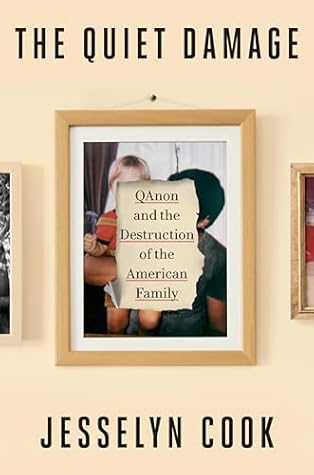More on this book
Community
Kindle Notes & Highlights
Read between
March 28 - April 3, 2025
The destruction it caused, however, was staggering: Beyond the relationships she’d lost and the emotional strife she’d suffered, she was actively demolishing her reputation as the kind, compassionate human he knew her to be. How much more was she willing to wager on a dream that might never come true?
“Cultivate your garden.” It was a reference to Candide, a novel written by the French philosopher Voltaire, who warned of the perils of worrying about things beyond one’s control. Rather than fret over the state of the world and the many issues plaguing mankind, which would only lead to endless despair, Voltaire argued, people ought to focus on their own lives, or tend to their own gardens. That was the way to find true peace of mind.
Though it agonized him, he viewed her conspiracy theory affliction not as who she was but as something that had happened to her, like an infection of the mind. One without a cure, it seemed. He wouldn’t walk away from her if she were suffering from dementia, and he wasn’t going to do so now. The vows he had made to her were unconditional.
The single best way to counter fake news was to inoculate against it, with teachers—and, ideally, parents—leading the charge. There was simply no avoiding kids’ exposure to it.
There was nothing as isolating as keeping a secret.
After escaping the rabbit hole, Alice had returned to the edge. She was peering over. And her need for community, once again unmet, threatened to pull her right back in.
It was becoming embarrassingly, disturbingly clear to him that his beliefs had been rooted simply in a desire to believe. Being a digital soldier had made him feel good. Logic had nothing to do with it.
It was Christian nationalism: a theocratic ideology rejected by many mainstream Christians as a perversion of their faith and a cover for white supremacy.
He didn’t need to be a digital soldier or even a servant of God to find purpose in life. It wasn’t his job to save the world one way or another. He just needed to be a good parent, a good partner, and a good person. That was enough.
What we’re facing is as much a wellness crisis as it is a disinformation crisis. Our interventions need to reflect that.
“but if you’re feeling uncertain; if you’re feeling a lack of control; if you’re feeling socially isolated; if you’re feeling helpless and searching for answers, because answers will make you feel better, then media literacy won’t help you. You’ll throw it all out the window.”
“If you really, really want to believe, then you’ll find a way, regardless of facts and evidence,” Miller says. “So the question is: Why do so many of us want to believe right now?”
Unlike QAnon’s silver-bullet “Great Awakening” to bring an end to the world’s woes, there is, of course, no simple solution here. But a good place to start would be broadening access to mental health services using a community-based approach, and, critically, fostering emotional resilience in kids.
Conspiracy theories may cast someone as a digital soldier or a patriot or a righteous activist—a fantastical narrative that the reality of their ordinary life likely just can’t compete with. The process, therefore, involves gently chipping away at the fantasy while helping the person reach a point at which they can begin to rewrite their story in real life.
But the need for support doesn’t end when someone breaks free from this way of thinking—it increases.


